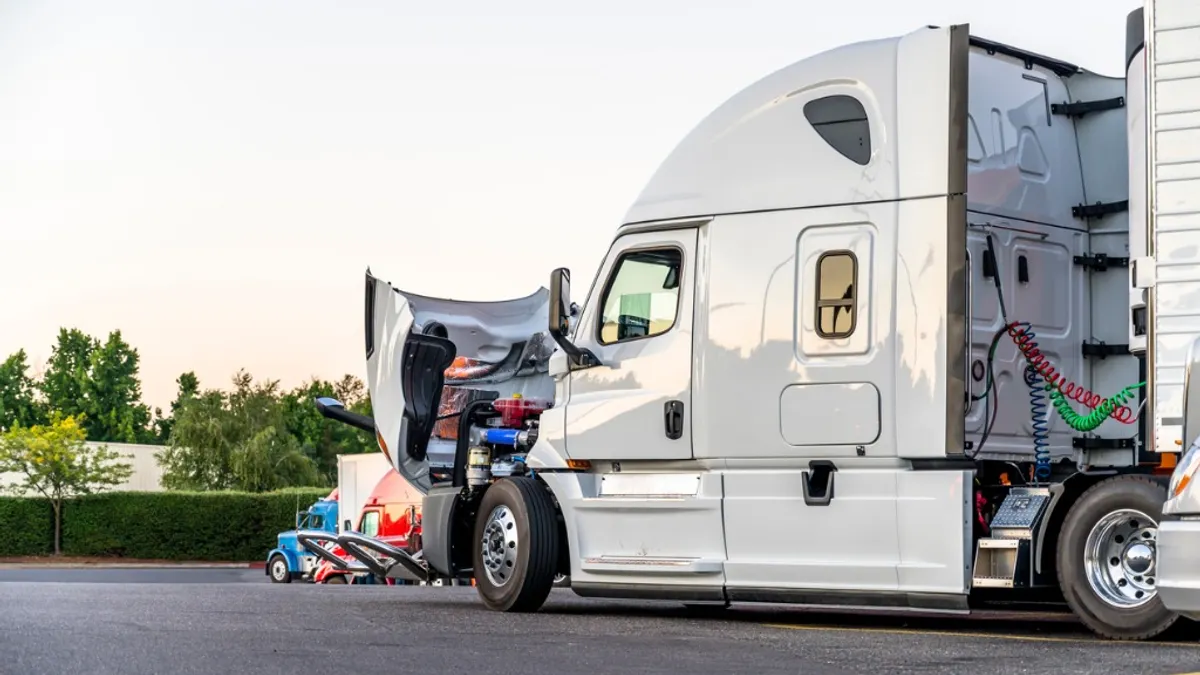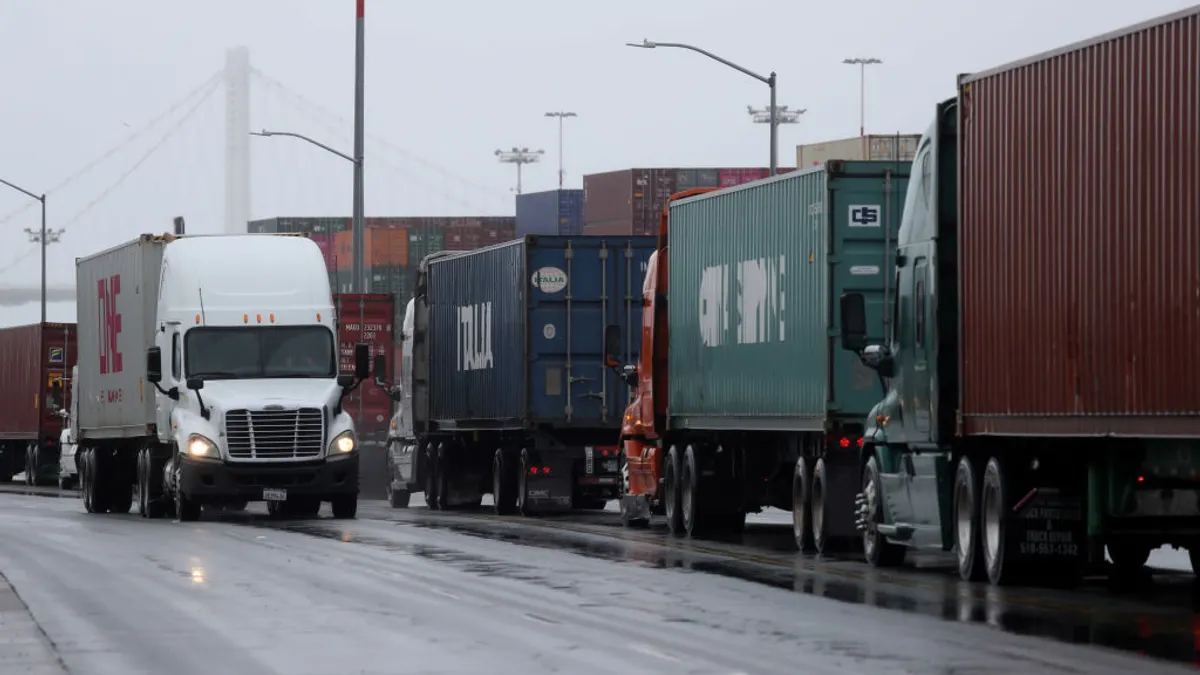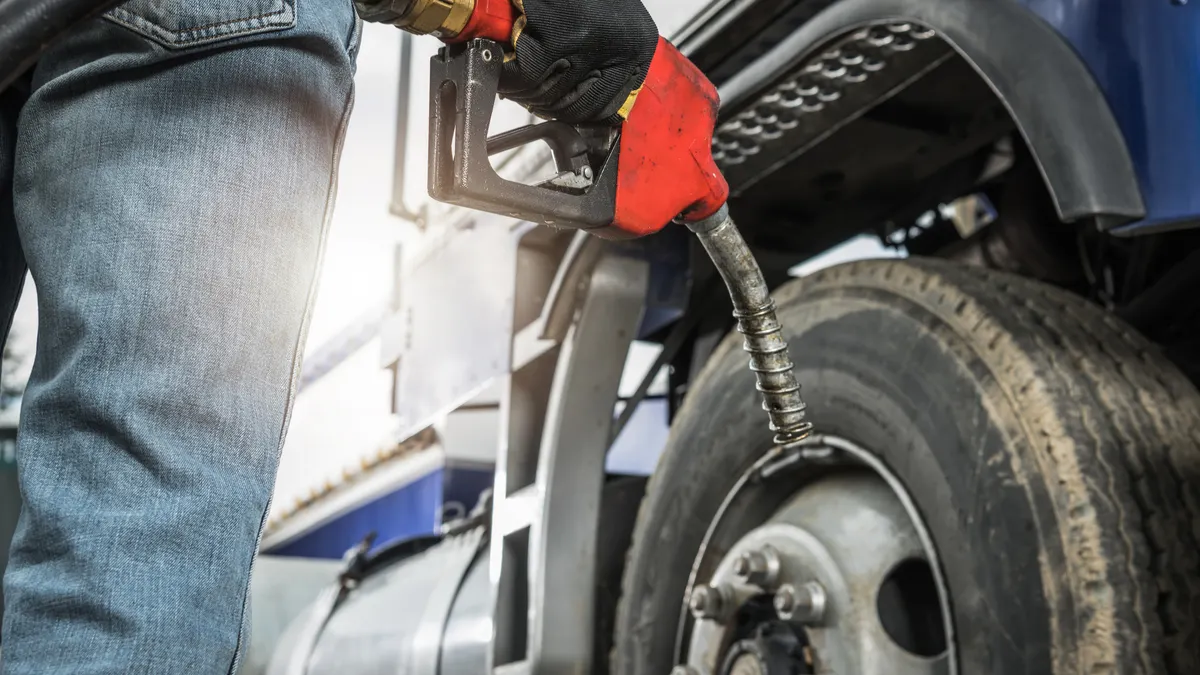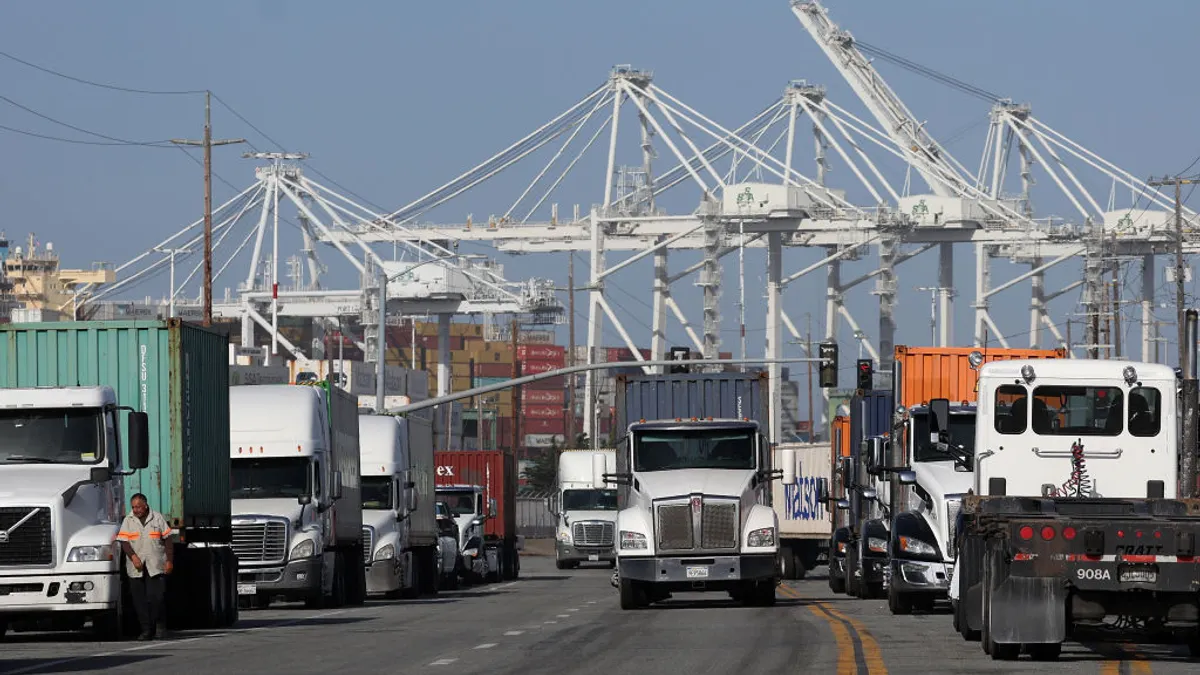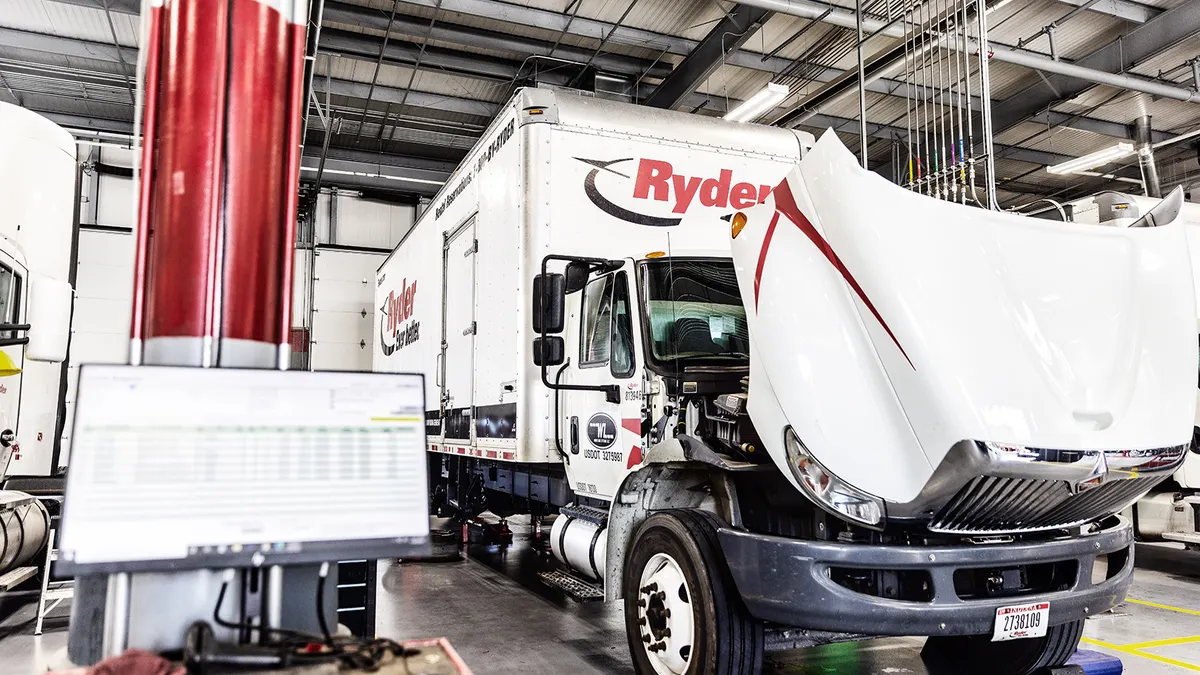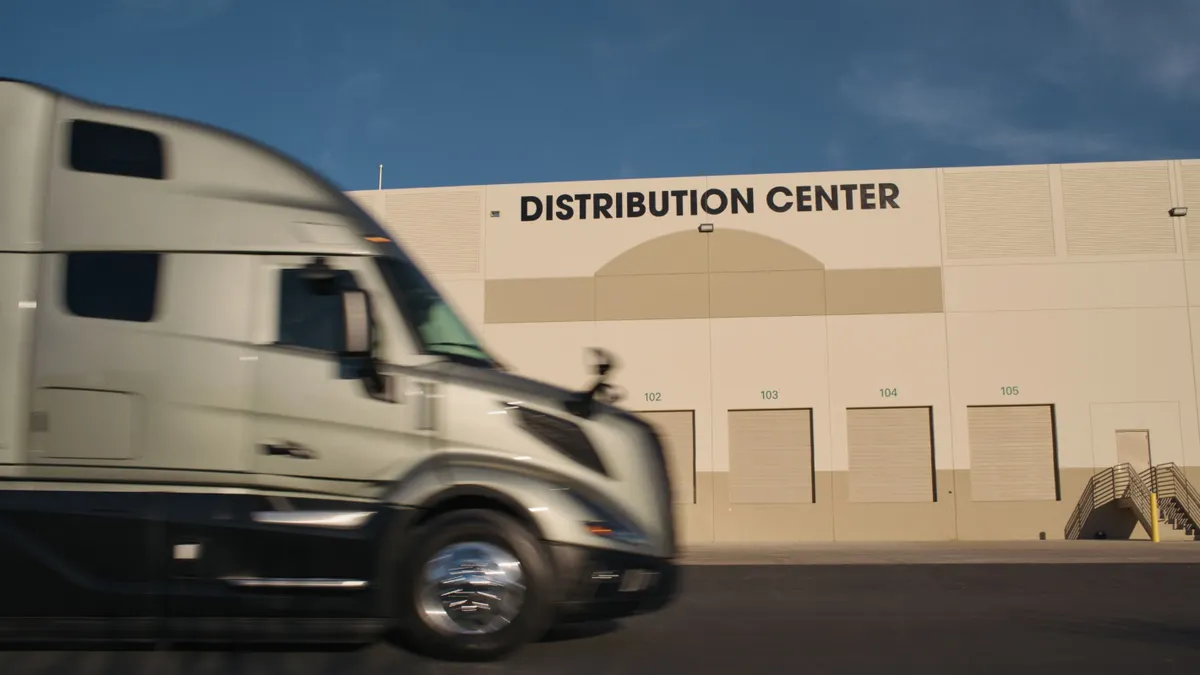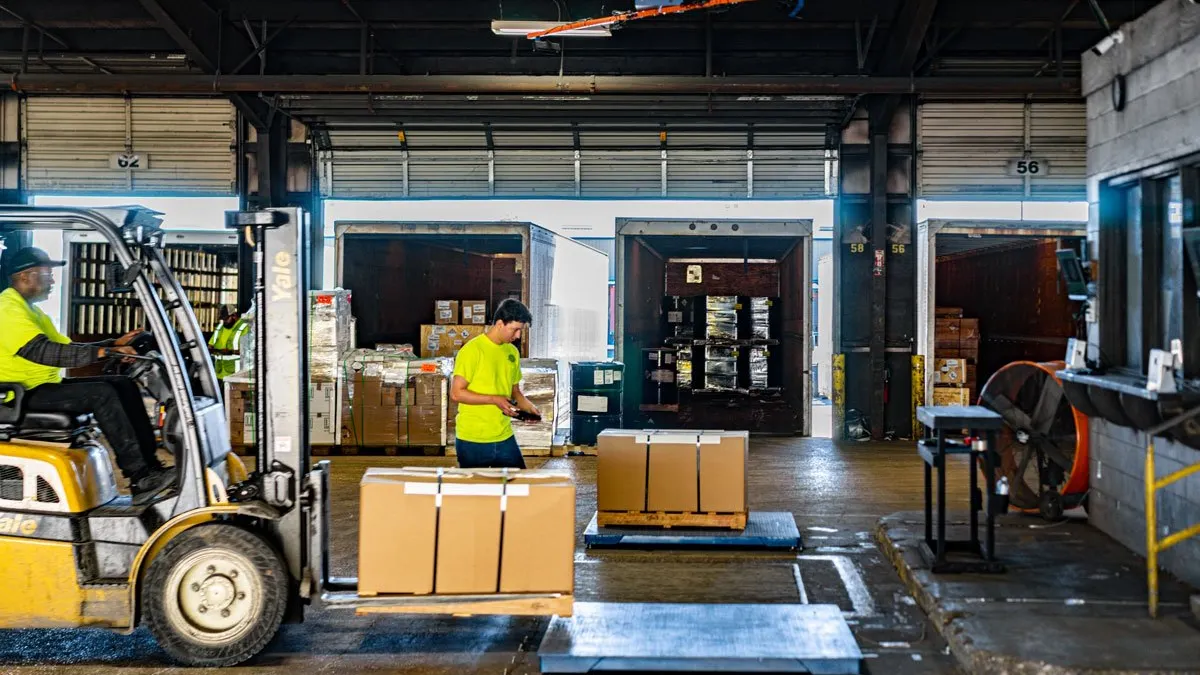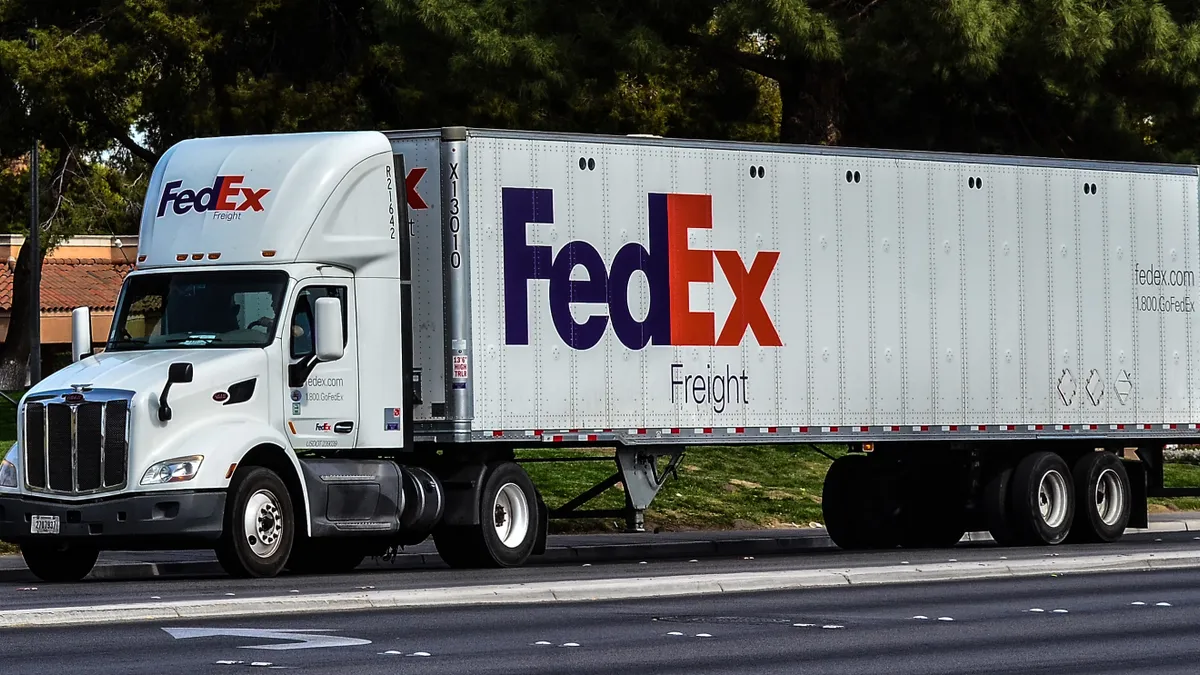With XPO's Friday announcement it would suspend a review of spinning off its parts, it's likely other trucking and logistics firms will follow suit, and delay mergers and acquisitions in 2020, the result of a virus slowing the world and U.S. economics, analysts say.
The outbreak of COVID-19 has cast a shadow across potential deals.
"Both financing and capital markets look very different today than 30 days ago," said Nikhil Sathe, managing director of the mergers and acquisitions practice for consulting firm Armstrong & Associates, speaking to Transport Dive. "I am seeing active deals paused."
Yet the possible recessionary economy could present opportunities to buyers, as transport companies with troubles may look for an exit, via a sale.
"There will be opportunities, especially if [buyers] have a lot of cash," said Jonathan Britva, a principal at Republic Partners, an investment bank that provides services to owners and leaders of middle-market companies, speaking to Transport Dive.
But is there more risk than reward? In recent history, M&A activity during a recession has slowed, Sathe said. Valuations are often influenced by the financing environment and the capital markets. Both are headed toward trouble, Sathe said. And many sellers will be resistant to selling at a deep discount. Instead, many sellers will want to wait out the COVID-19 crisis before selling.
COVID-19: A new type of crisis
The hesitation is understandable. Reaction to COVID-19 is causing massive uncertainty: shutdowns of schools and some businesses, and slowdowns of other business. Some banks have seen enough and declared a recession is here, now.
"We are officially declaring that the economy has fallen into a recession ... joining the rest of the world, and it is a deep plunge," said economist Michelle Meyer of Bank of America, according to CNBC. "Jobs will be lost, wealth will be destroyed and confidence depressed."
Economists at JPMorgan Chase predicted the U.S. economy will shrink 15.5% in Q2, according to a March 18 report. "Global GDP to contract two consecutive quarters," the report predicted. "Full year 2020 at -1.1%."

But Bruce Kasman, chief economist at JPMorgan Chase, said he does not believe this recession is akin to the Great Recession of 2007-2009, which was a financial recession. For one, policy is quickly adjusting to make credit flow.
"Lend without limit, to solvent firms, against good collateral," the report says. "Policy supports are stepping in to provide credit in areas the private sector is unwilling to do so at a reasonable price."
"Markets don't like uncertainty. COVID-19 is the health crisis of a generation ... I have never seen anything like this."

Nikhil Sathe
Managing director, M&A advisory, Armstrong & Associates
Sathe said the viral spread is a new type of global crisis causing new types of M&A concerns.
"Markets don't like uncertainty," said Sathe. "COVID-19 is the health crisis of a generation ... We are headed to a consumer-led recession. I have never seen anything like this."
In transport, Sathe said he is expecting an annual drop in 3PL revenues of between 8% and 10%. That will make buyers hesitant to snap up properties if they are concerned about maintaining EBITDA targets, he said.
M&A changes vary by size, market
Mid-market M&A activity will slow the most, Sathe said. He defined mid-market as businesses with fewer than 300 people, with less than $300 million in annual revenue.
Yet M&A activity is unlike other economic behaviors. Some buyers will now look for assets that are dropping in value because of the economic slowdown, all while demand for shipping has actually surged during the COVID-19 outbreak in the United States. The federal government has suspended hours of service for drivers, to make sure enough trucks are on the road delivering food, medicine and other supplies that are flying off the shelves.
For some buyers with a cash cushion, it will be a buying opportunity, not a time to sit on the sidelines until 2021, Britva said. Yet initiating a new deal in the early stages of the U.S. COVID-19 problems could be unattractive. Britva said deals already in the late stages can probably still be completed in 2020.
But deeper into the second quarter of 2020, "it becomes more and more difficult to close this year," Britva said. Deals could be pushed into 2021, he said.
As March goes on, Britva said he is seeing two buckets of deals forming. One bucket is ongoing deals, which have a lot of paperwork done. Those deals have potential for 2020 closure. Another bucket would take more work, and with a possible recession, that means the deals are uncertain.
"I have had other projects that have hit the pause button. We're still in a very uncertain time for M&A."

Jonathan Britva
Principal, Republic Partners
Pandemic flips the switch
The situation in mid-March is certainly different — perhaps radically so — than Jan. 1. The year started with a shock announcement from XPO Logistics. Bradley Jacobs, XPO CEO and chairman, surprised Wall Street and the trucking sector by saying XPO would consider selling or spinning off parts. Jacobs said XPO stock was being dragged down by aspects of the business that didn't seem to match its strong LTL segment.
"We continue to trade at well below the sum of our parts and at a significant discount to our pure-play peers," Jacobs said. "That’s why we believe the best way to continue to maximize shareholder value is to explore our options, while remaining intensely committed to the satisfaction of our customers and employees."
Only months earlier, Jacobs said he had an appetite to buy. And it turned out XPO was not done with acquisitions for 2020. In March, XPO acquired the majority of Kuehne + Nagel’s contract logistics operations in the U.K. The logistics services included inbound and outbound distribution, reverse logistics management and inventory management. The Kuehne + Nagel portion generated revenue of approximately $584 million from the beverage, technology, e-commerce and food-service verticals, XPO said.
The acquisition was notable as it was closed during ongoing news coverage of the spread of COVID-19. But as March went on, and major events in the United States and Canada got canceled, it became clear M&A deals, even ones by XPO, could be slowed.
Jacobs had been fairly aggressive in the past. He had built XPO up since 2011 into one of the largest trucking firms in North America by buying other companies like Con-way Freight. Even as late as September, he told Morgan Stanley analysts he would spend up to 15% of his time looking at companies to acquire.
XPO made its new caution official on Friday, when it filed paperwork with the SEC that said it terminated the strategic review process to spin parts off.





